golang.org/s/go15vendor
groups.google.com/forum/#!msg/go…
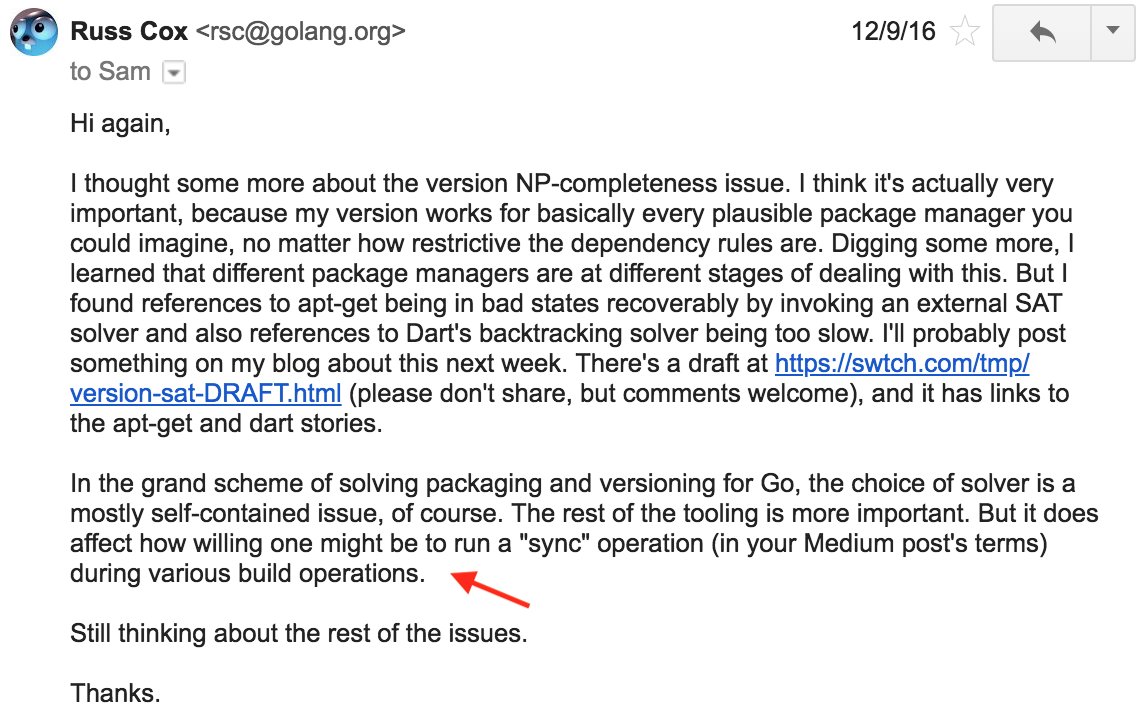
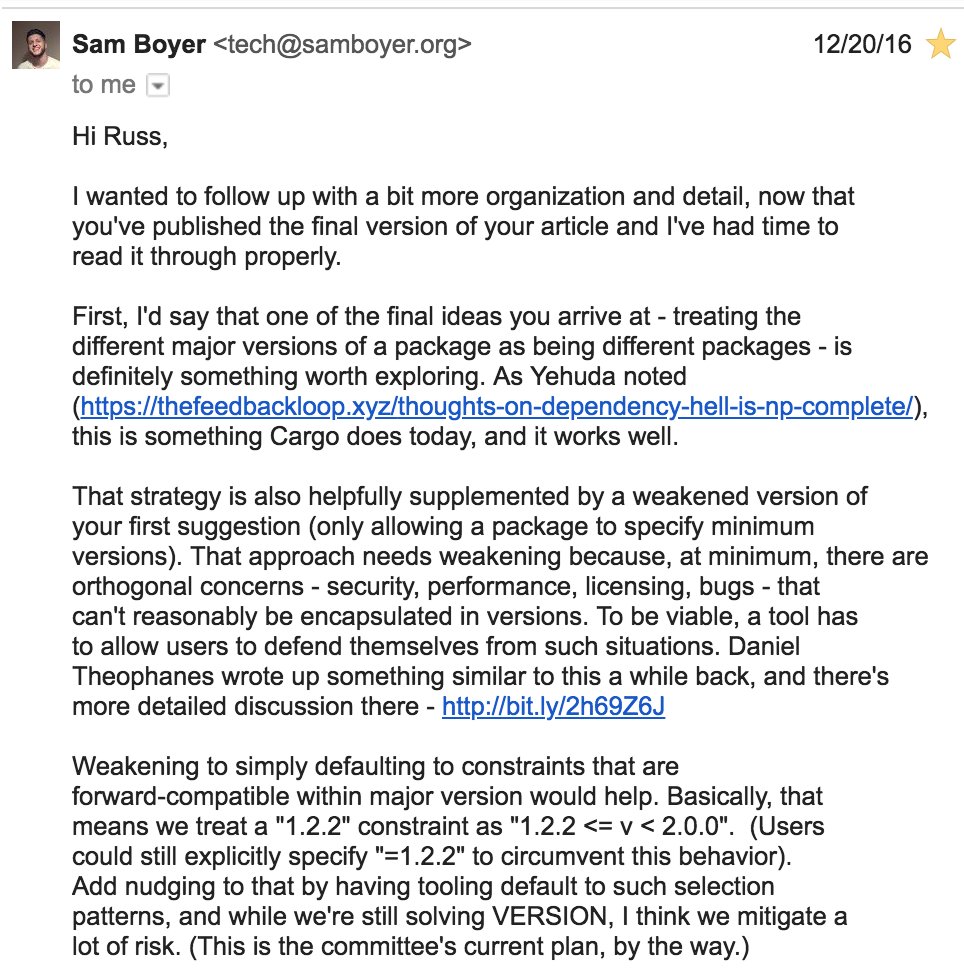
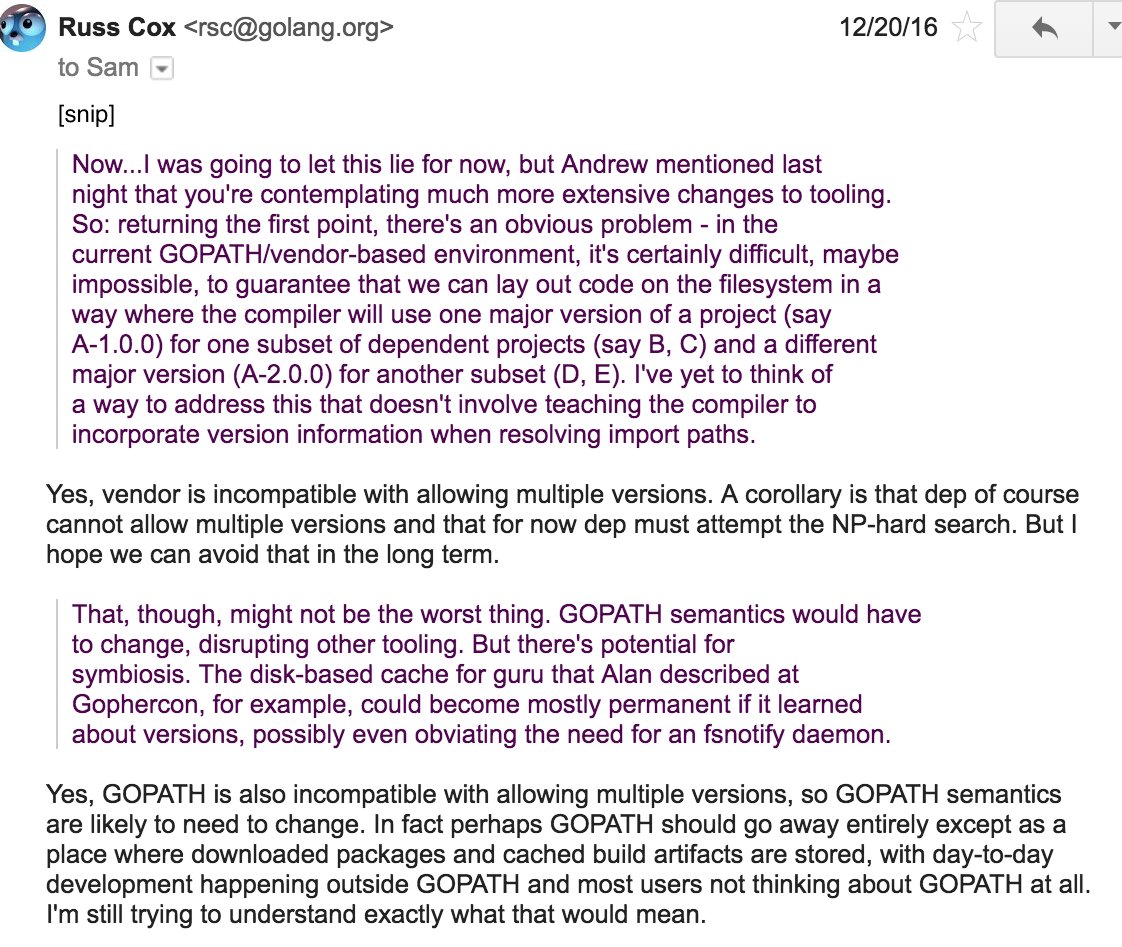
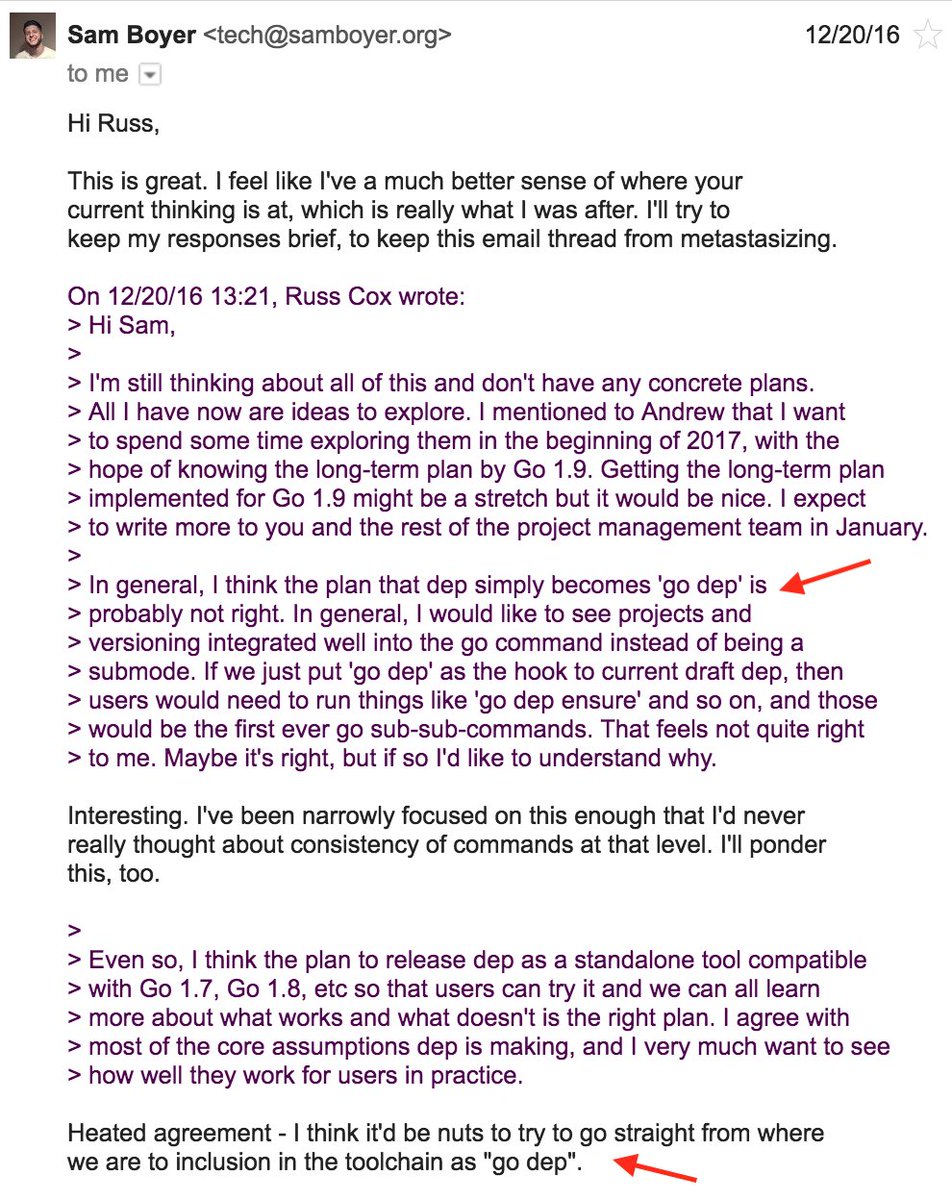
github.com/golang/dep/iss…
gist.github.com/rsc/c4472e4e29…
groups.google.com/d/msg/golang-n…
groups.google.com/d/msg/golang-n…
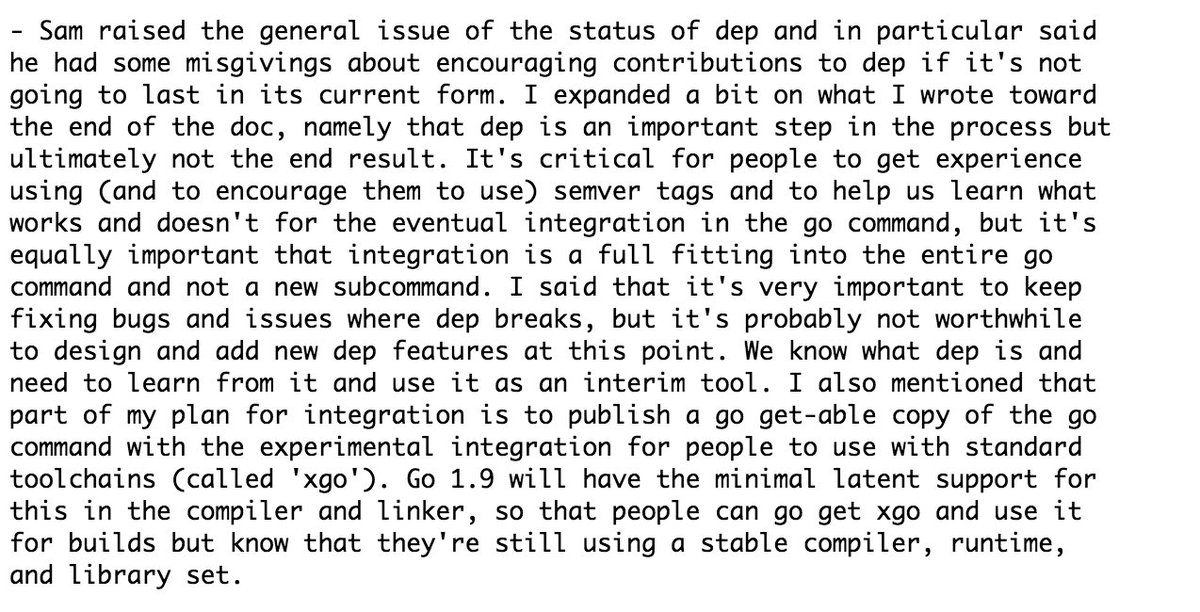
codeengineered.com/blog/2018/gola…

research.swtch.com/impver-draft-2…
- I learned that people are comfortable with and even expect semantic versioning.
- I learned that using SAT to find constraints can take a very long time and still does not imply a single best answer.
golang.org/s/proposal









